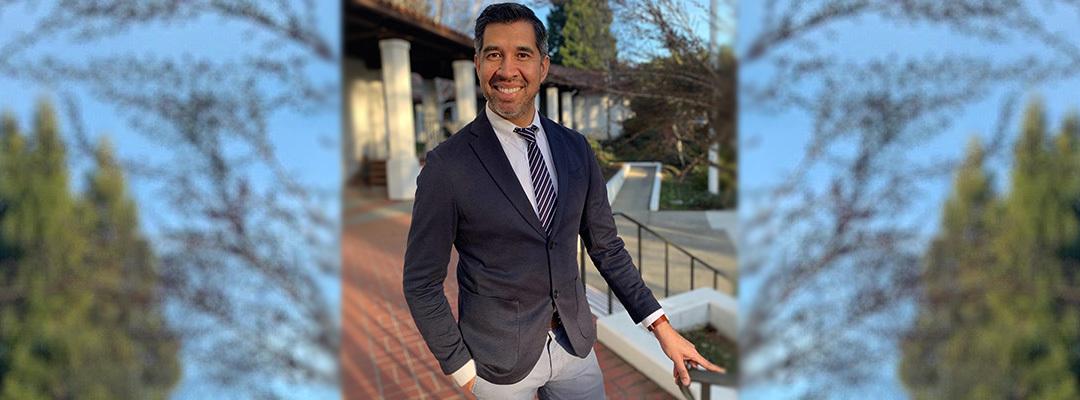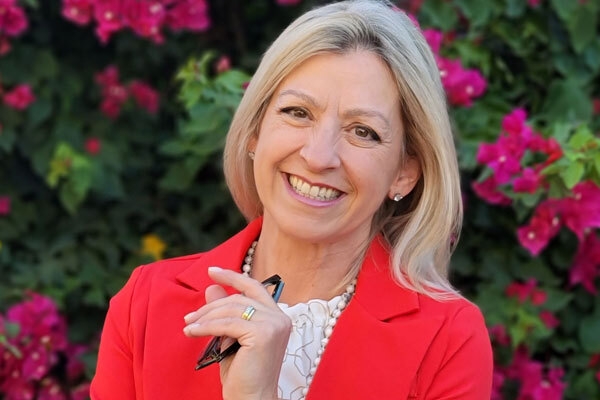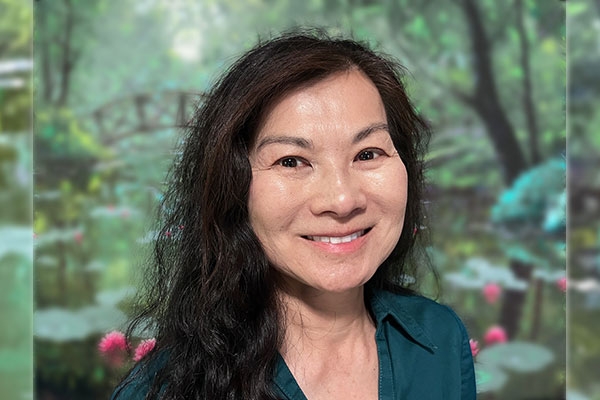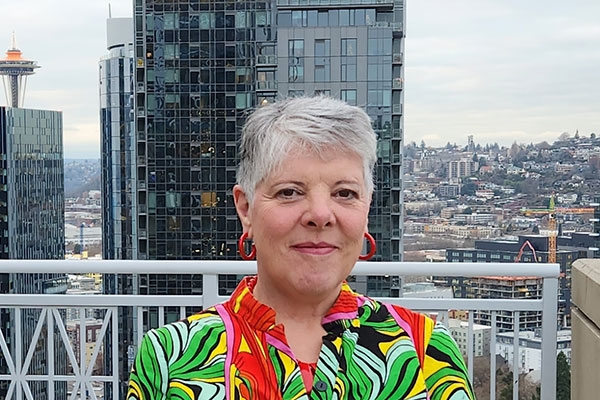Sometimes, students feel pressure to do well in school in order to pursue higher education—the right higher-education opportunity.
Armando Diaz, a former English teacher who is now a licensed high school counselor and an instructor in the Certificate Program in College Admissions and Career Planning, can empathize. Of his time as a student, he recalls, “I know what it was like to sit in class and think to myself, ‘Boy, a lot of people are depending on me to do well in school right now’—in elementary school, in high school and in college.”
Raves for Armando Diaz, a 2020 Inspirational Instructor
Students who share those thoughts may seek the expert guidance of an educational adviser, someone whose career is helping students with their academic and social needs. School and career counseling is also a field that continues to grow, according to the Bureau of Labor Statistics.
So what about adult students who want to become that educational adviser—perhaps embarking on a new career in college admissions counseling? Armando understands them, too.
“Armando possesses the skills and strategies to bolster students’ confidence and self-reliance while they digest complex content and forge a new professional identity,” commends Sigrid Mueller, former program director for the College Admissions and Career Planning certificate program.
Armando’s incorporation of empathy and understanding in his college admissions advising classes and in the certificate program is what makes him an obvious choice for one of our 2020 Extension Inspirational Instructors.
Armando’s Inspiration
After graduating from the University of California, Davis, with a bachelor’s degree in English Literature in 1998, Armando earned a CLAD Credential and a Single Subject teaching credential in English from Saint Mary's College of California in 1999. In 2003, he went back to Saint Mary’s to earn his master’s degree—and a post-master's degree credential in pupil personnel services—in school counseling.
“I originally began my career in education as a high school English teacher in 1998, then slowly transitioned into school counseling in 2008,” Armando recalls. “While I still enjoy working with high school students in both capacities, I've always been interested in trying new things and stretching myself as an educator.
“I was intrigued with the idea of using my experience as an English teacher, school counselor and college counselor to work with adults—to not only just participate in the field, but to also play a role in training counselors. I began teaching for Extension in 2017, and I continue to work with my student cohorts today,” Armando told us in a previous blog interview.
“He really bends over backward to make sure that each student is getting what they need in order to be successful.”
—College Admissions Advising A X369.3 student testimonial, Spring 2020
“As school counselors at the high school level, college admissions advising is interwoven into what we do, from the beginning all the way to the end. I found this aspect so fascinating because it represented the fruit of all of the work leading up to it: the personal struggles, the family support, the aspirations.
“All of those things came together when I would practice college admissions counseling, and it still excites me tremendously to help students and families through this process today.”
Family means a lot to Armando, as his own has been an important part of his educational and mentoring journey. He continues to be inspired and to grow.
“I was one of the first people on either side of my family to graduate high school and attend a college of any level. I think that sense of obligation mixed in with a feeling of pressure—and my ability to see that in young people—inspired me, in a way, to become a counselor.
“I learned to process those fears and that sense of obligation, normalize them and use them to build my resilience. In turn, I have learned to understand those same emotions in my students, and let them know, ‘Hey, I’ve been there, too, and you will get through this!’”
A Community of Learners, Not Just Attendees
After he was hired to teach for us, Armando began working with other educators and staff to create an engaging online learning environment based on his revamped on-ground course content.
“There was a very strong emphasis on formulating the courses to make sure the curriculum was engaging and would build the correct skills for the students to be successful in the field. We talked about what content went well, what really engaged the students and what the overall spirit was that I was trying to create with my in-person classes. I wanted collaborative, safe-spaces where I led the content in a way that invited everyone to be a part of the learning process, and I think that mentality carried over directly into the online classes,” he says.
That care has paid off during the COVID-19 pandemic. Armando’s classroom model of supportive and active learning has been invaluable to his students in its online format.
How so?
He incorporates strategies that support community building by:
-
Opening each course with a short video where he addresses the main differences between a traditional and an online classroom and provides tips on how to be a successful online learner.
-
Offering virtual support through weekly office hours either via Zoom, Skype or phone.
-
Inviting and validating different opinions and different ways to approach a task or solve a problem.
-
Creating supplemental discussion threads outside the course content to allow students to explore their thoughts and seek advice from each other in an informal way.
-
Posting every Monday morning a short 5-minute video in the online classroom, where he summarizes the main points from the previous lesson and previews the upcoming week’s content.
-
Using active listening, where he doesn’t impose his own perspective and instead finds out what it is that students want or need from their own words.
“I make sure I post comments in the discussion threads, and even privately give words of encouragement if a particular post was above their normal level of work,” he explains. “I often refer back to the initial ‘Tell Us About Yourself’ post and make sure I know and remember details about each person: where they live, what their interests are, et cetera. Before I speak to or email them, I tap back into those details so that they know I see them as individuals and not just faces on a screen.”
“He treats his students as colleagues and equal contributors to the class discussions.”
—College Admissions Advising A X369.3 student testimonial, Fall 2017
Armando’s student-centered online classrooms create an inclusive and supportive learning environment, for both students and instructors.
“Whether online or in person, the instructor still sets the tone, dictates the pace and ultimately becomes the ‘face’ of the content they are teaching,” Armando says.
“I try to impart the importance of staying student-centered and that any errors they may make as new instructors could be forgiven if the students knew of and internalized the teacher’s care for them as students and as people.”
Helping Students Meet Their Goals
“I have been a credentialed secondary-school teacher since 1999, and my years in the classroom confirmed the old adage that ‘good teaching is good teaching,’” he continues.
“Taking the time to craft engaging lessons, tapping into students' prior knowledge, using audio-visual tools, mixing up instructional methods—those were all solid aspects of teaching that I knew I wanted to bring into this certificate program. But I also wanted to give my adult students keen insights into how teenagers think and why they do the things they do.
“Experience in high-school teaching helped ground the topics in a really useful way for the students, along with applying all of the aspects of good teaching that I've been practicing for so many years.”
“He left insightful comments and challenging questions on my graded assignments, prompting me to think deeper.”
—College Admissions Advising A X369.3 student testimonial, Spring 2020
We also believe that Armando’s teaching background aids in his success in explaining complex educational content.
College Admissions Advising A and College Admissions Advising B are highly process-oriented courses. In these, students learn the nuts and bolts of college advising. While the content is complex, it is also straightforward. However, the actual application of the content and tailoring it to each individual high schooler’s circumstances is not.
Most of the students in this certificate program will either start or join an independent consulting business. Their goal is to find a balance between addressing each individual high school student’s needs while streamlining their own advising process and procedures. And part of that goal is also representing their true selves to their clients.
Because of this, Armando is always looking to make improvements to the program and takes course feedback seriously.
“I think the feedback has been clear that addressing this field from a perspective of social and educational equity and equal access is an area worth exploring for future sections,” he states.
“Now more than ever, students are coming in with a mentality of wanting to promote social change within the scope of their independent education consulting (IEC) practice, and that larger ideal of having their work be congruent with the type of person they are in regards to issues of social justice.
“This program allows for the students to build the type of practice they want; a practice that represents their values and their passions for change both on a larger scale in the world of education but also with each individual student client.”
“Armando Diaz was an excellent instructor who combined real-world experience with a dedication to and genuine interest in teaching and in each student’s progression.”
—College Admissions Advising A X369.3 student testimonial, Fall 2019
What’s Ahead in College Admissions and Career Counseling
“The educational experience continues to be about relationships first, then access to the content second,” Armando predicts.
“I don’t see that changing. And in many ways, I see college admissions as striving even more to be about connections. Especially in the context of our computer screens, we need to work extra hard to build trust, be seen and be heard.
“Inviting someone to invest their time with you as an instructor—or college adviser—is a very compelling invitation. With time and money being so precious nowadays, each individual practitioner needs to ask themselves this core question and be able to answer it in a way that paves the way for the future of this field, especially the digital future:
‘Why should this person spend their time with me?’”



